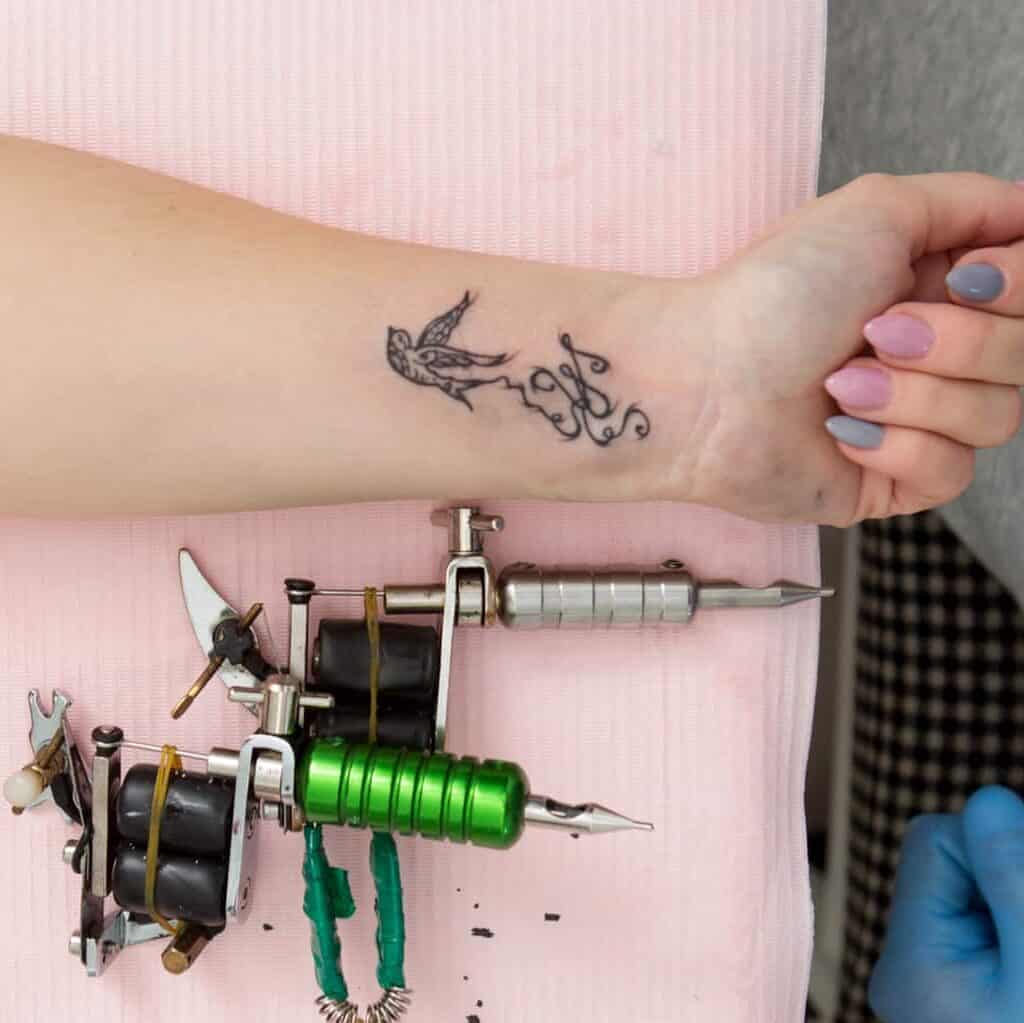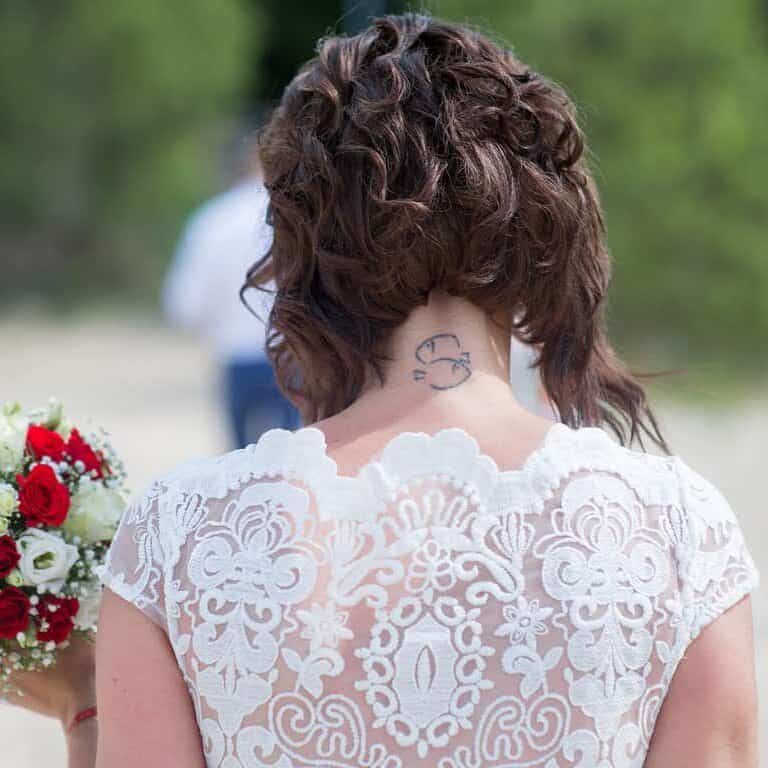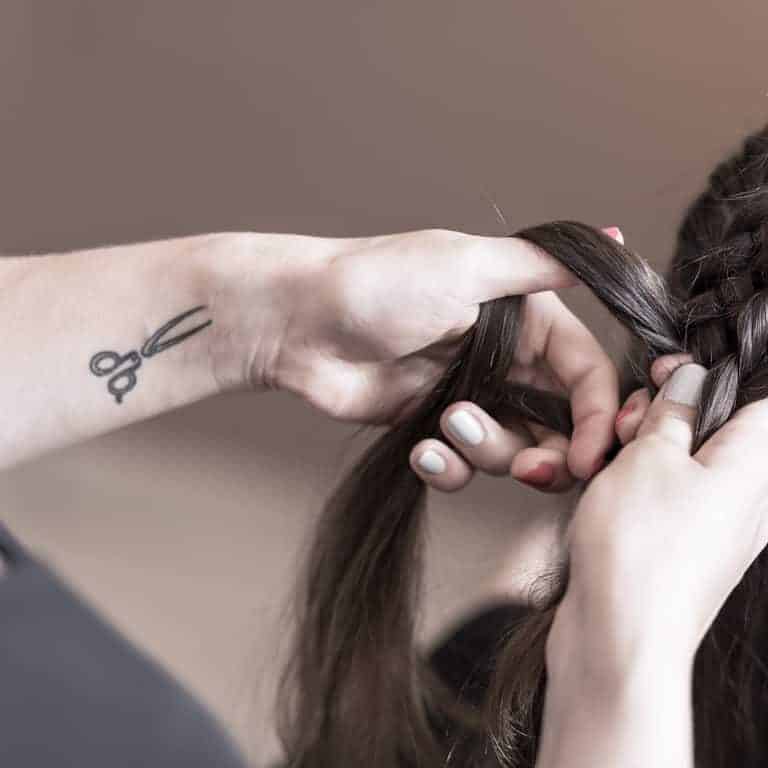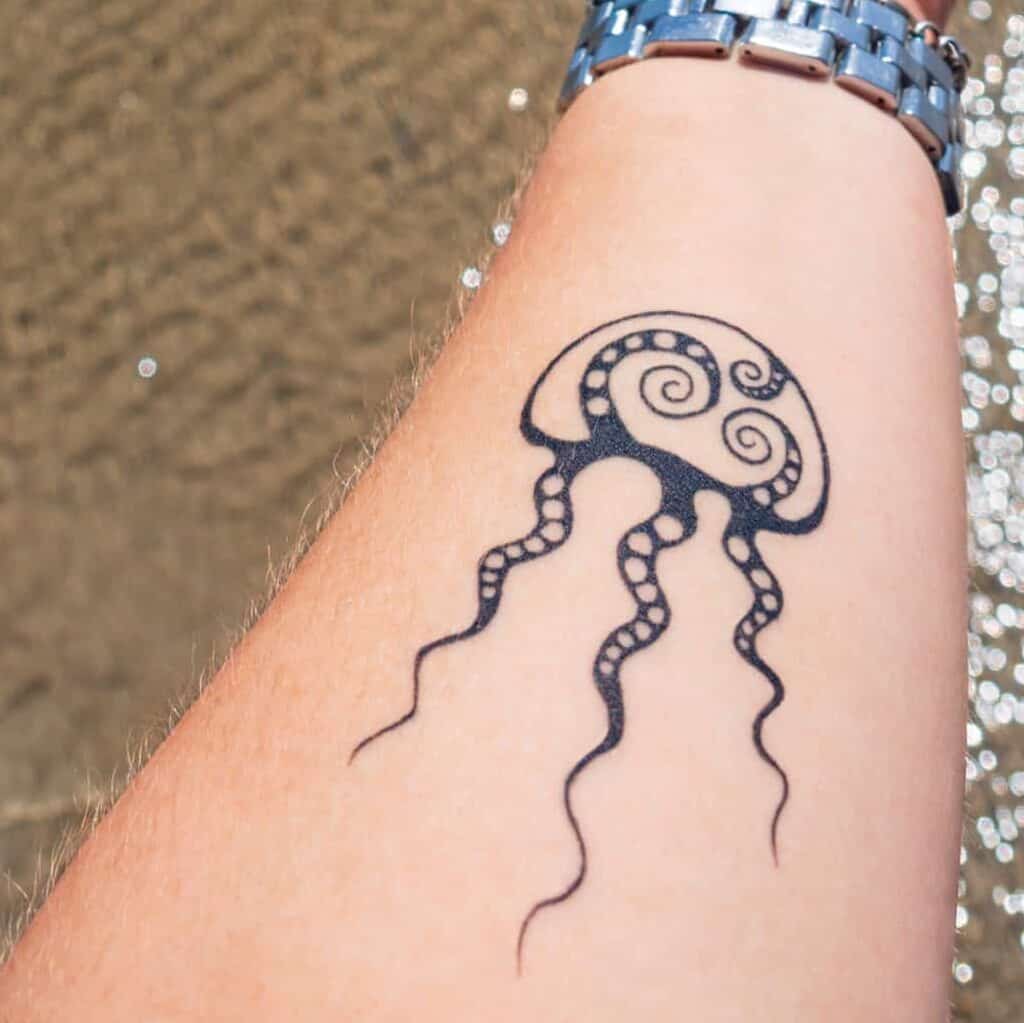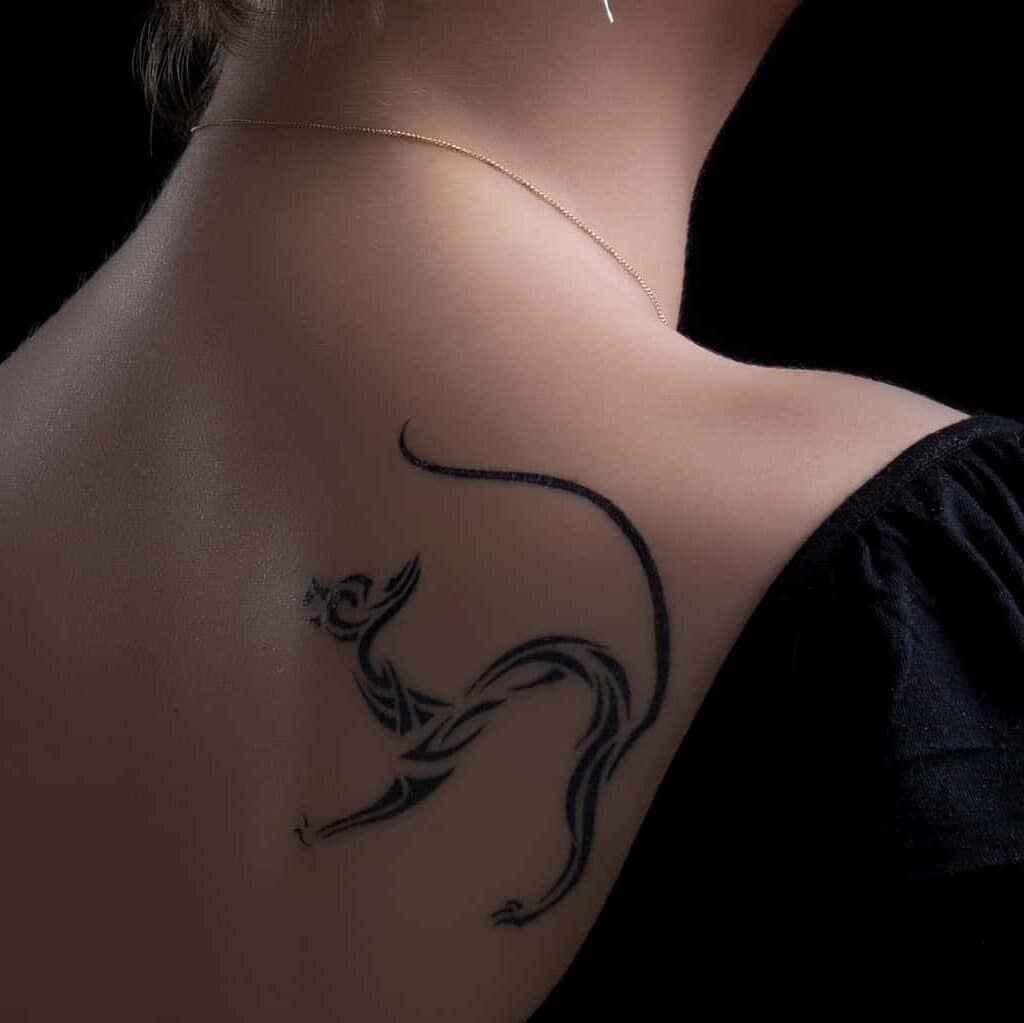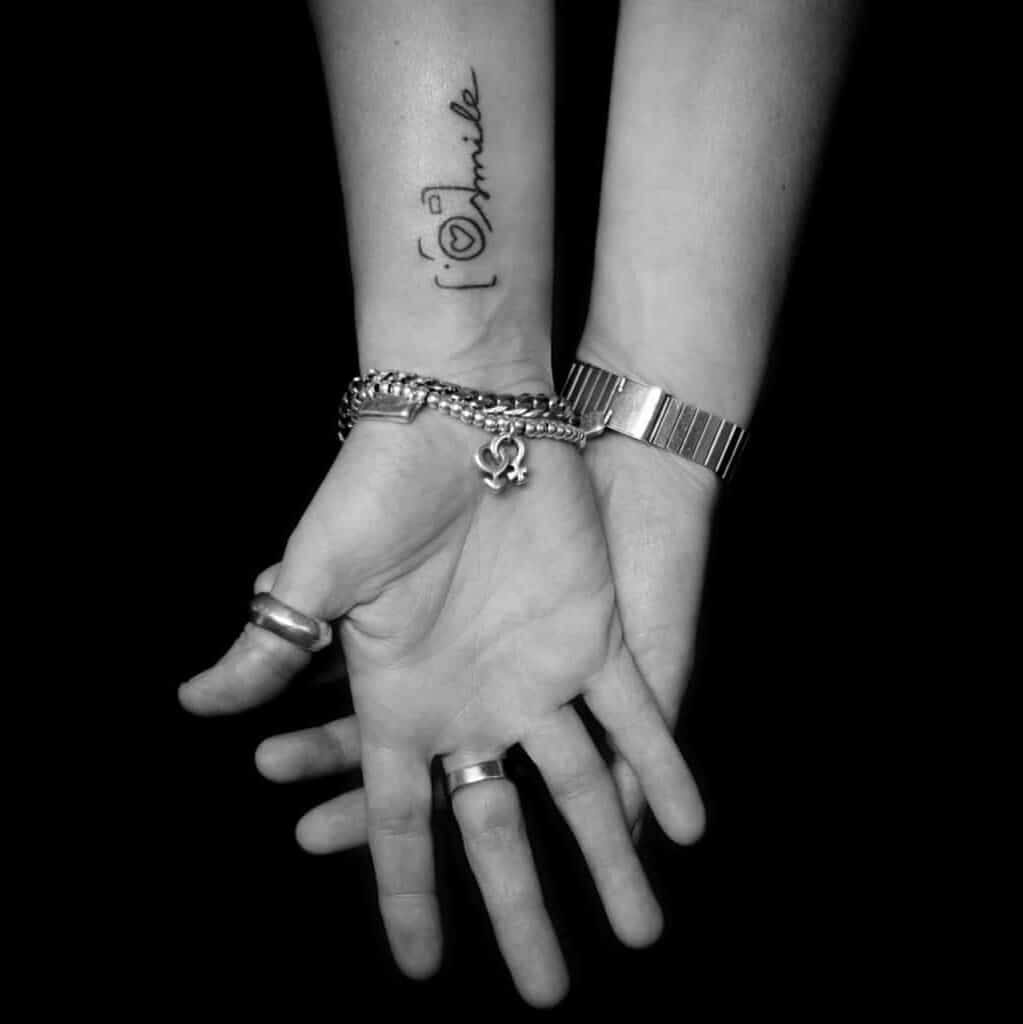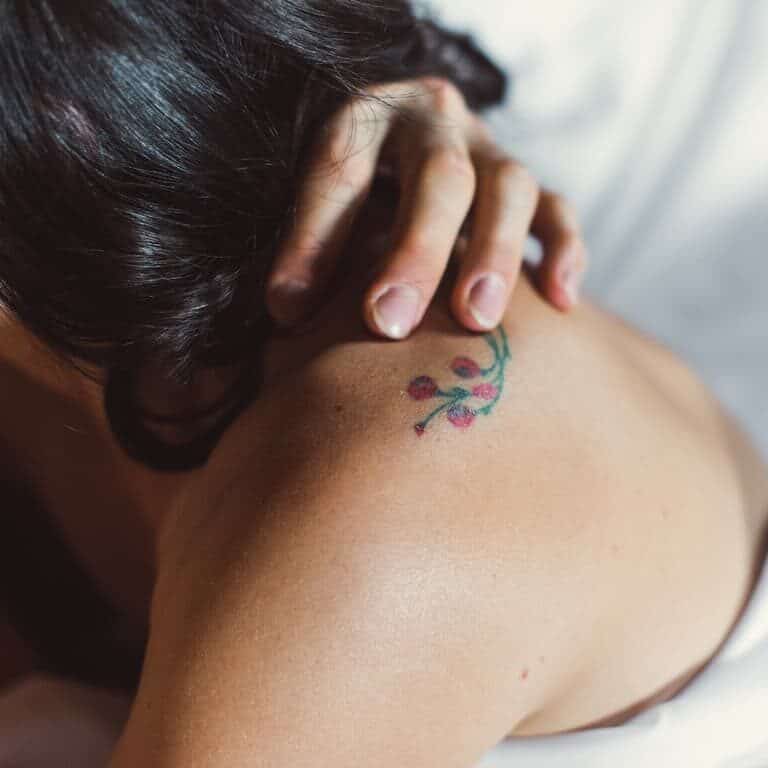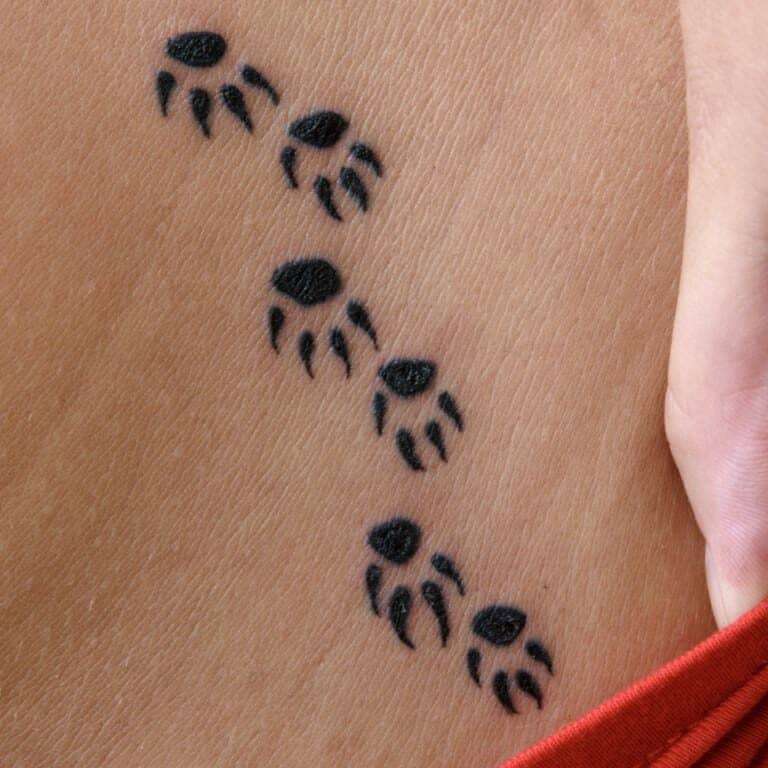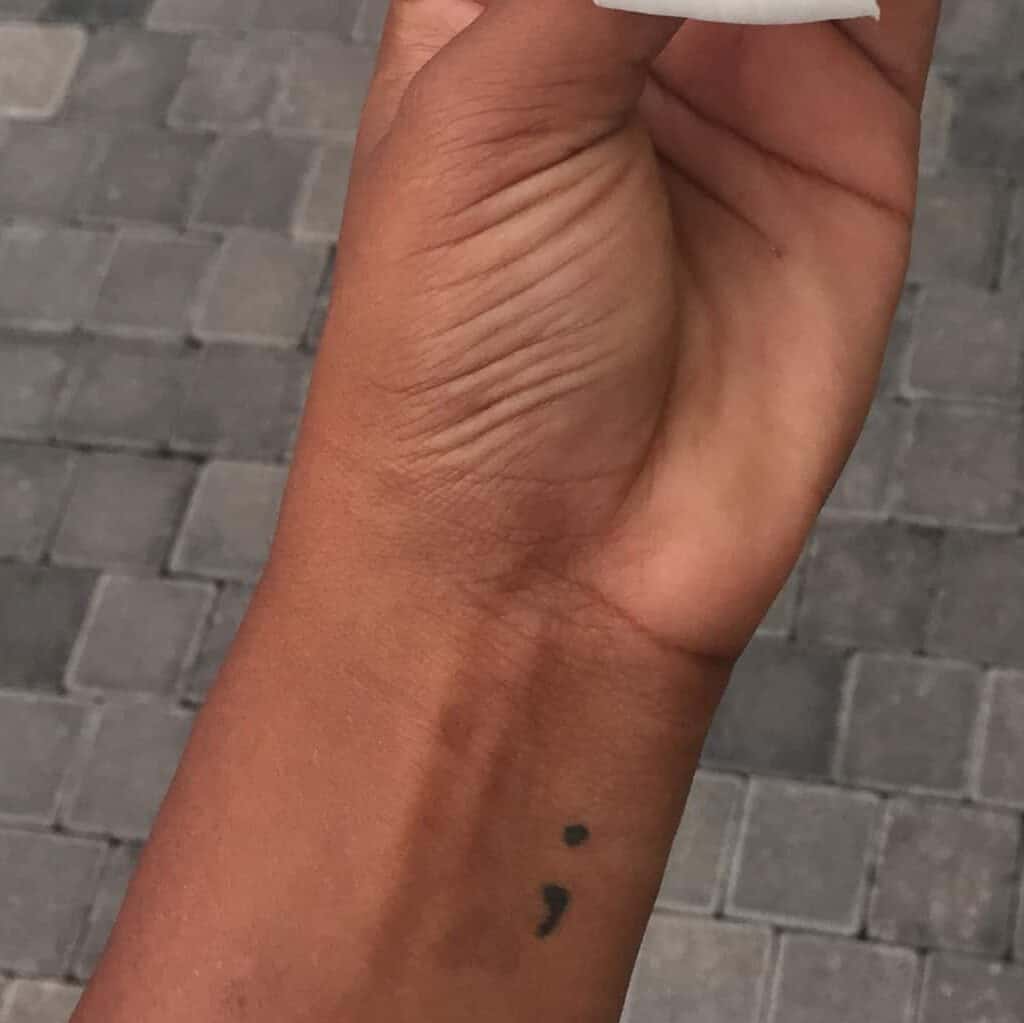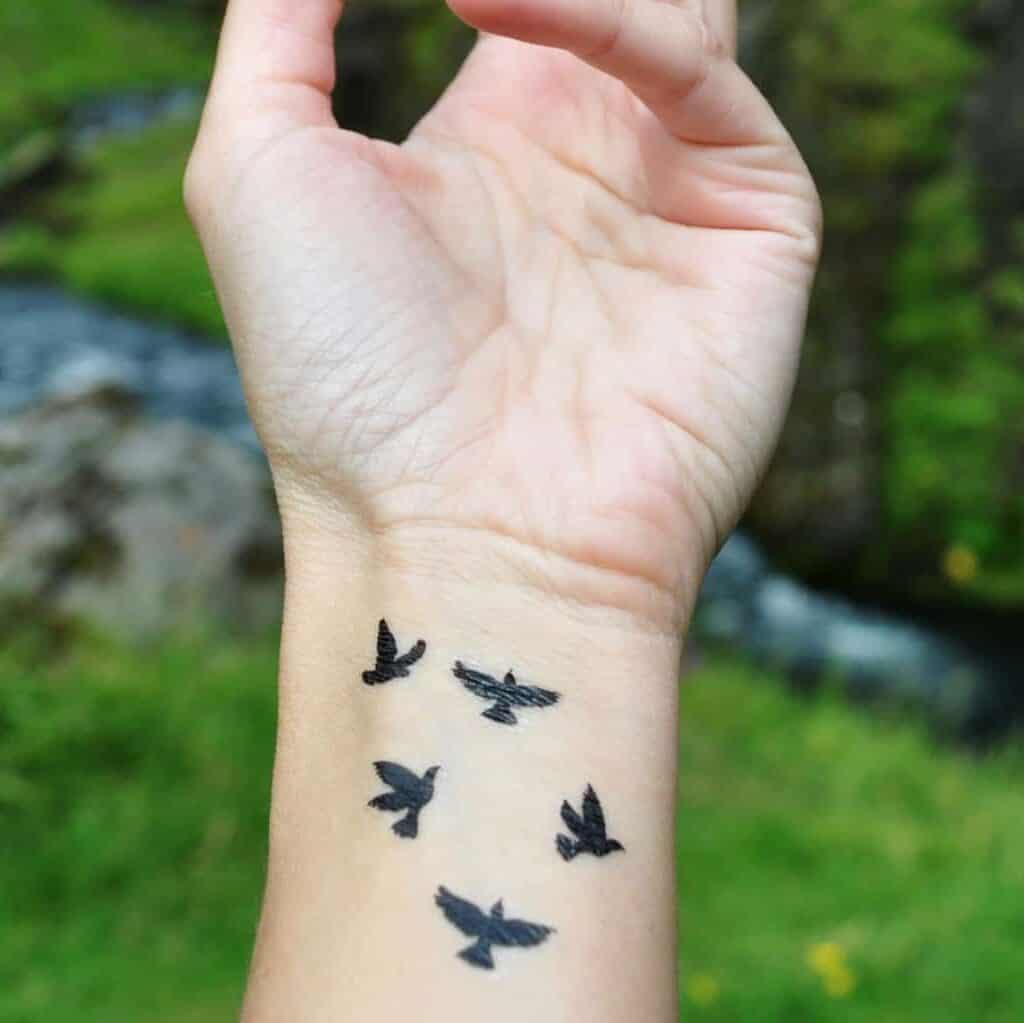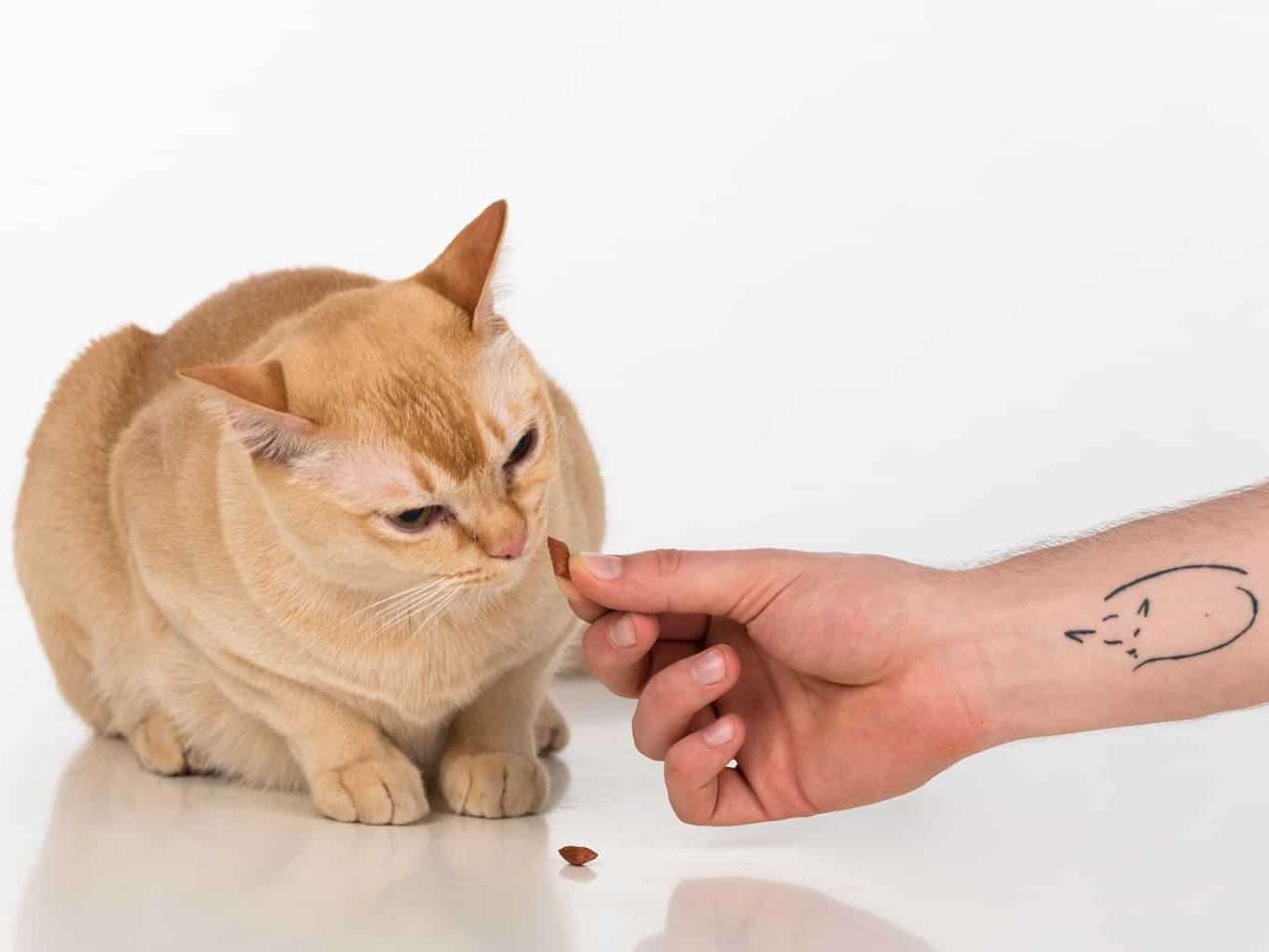
Big and bold tattoos aren’t for everyone. Maybe you’re experimenting with your first ink and want to take small steps.
Perhaps you need a tattoo that isn’t too large and obvious and can easily be concealed at work, or isn’t too obtrusive if it’s on a visible part of the body.
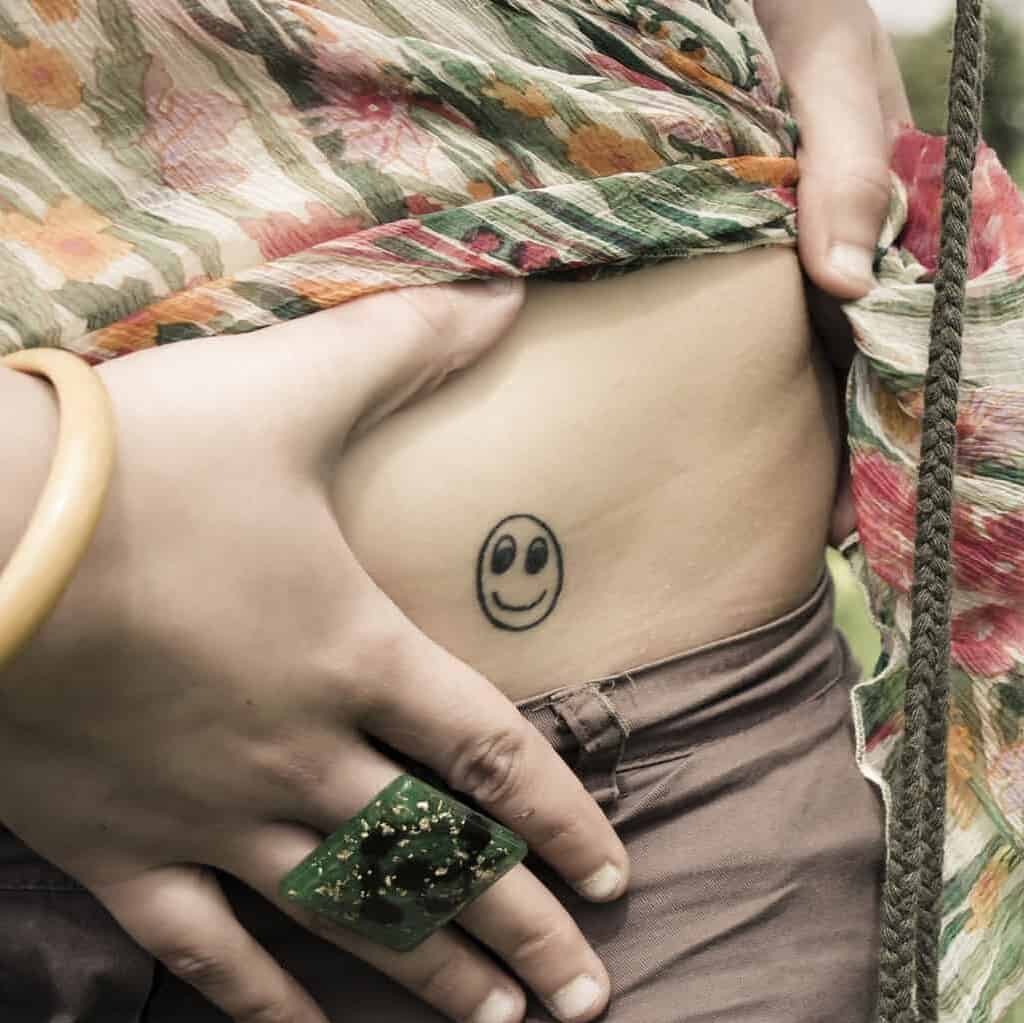
Or do you want something subtle, on the basis that, in style terms, less is more? If so, a crisp and clean minimalist tattoo could be exactly what you need.

Minimalist tattoos have several typical characteristics. Usually, they’re delicate and small scale – the other end of the spectrum from a sleeve tattoo. This also makes them ideal for some parts of the body, like the hands and fingers, or behind the ear.
- Hand and Finger Tattoos: 6 Essential Facts You Need to Know
- Behind The Ear Tattoos: What You Should Know Before Getting Inked

They generally use very fine lines and are rendered either in monochrome or using a restricted color palette.
Minimalist tattoos also commonly utilize highly stylized designs, where a motif is ‘deconstructed’, or reduced to the most essential visual elements that make it recognizable.
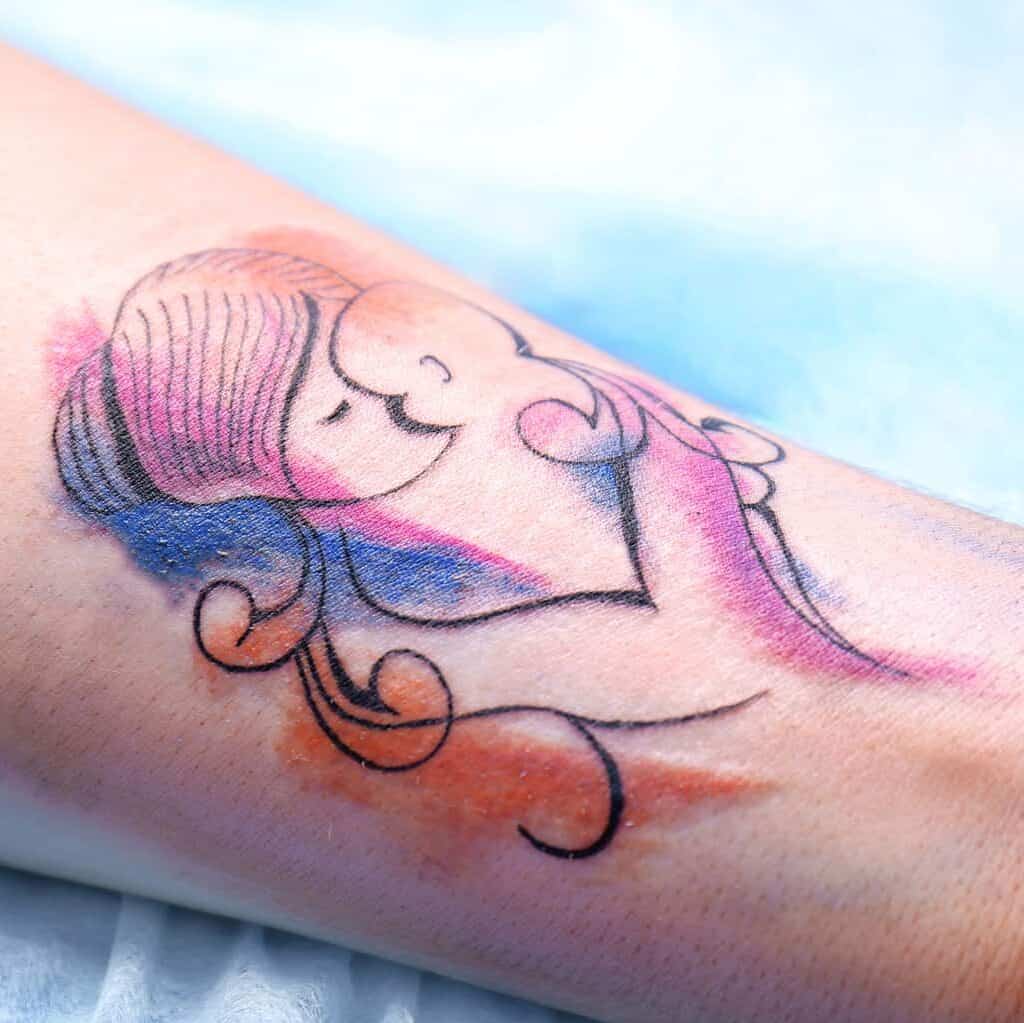
Although they’re often described as ‘delicate’, they’re not just for women: subtle doesn’t have a gender.
In theory, most motifs can be given the minimalist treatment, by reducing the size and color range and eliminating non-essential visual details.
Often that means simply representing something in outline, with no infill. If you have an image in mind that you’re set on having then it’s probably possible to have a minimalist version of it.

However, although some images work well on a smaller scale and in just one or two colors, some just don’t reduce well at all. But there’s still a huge choice range, especially if you understand the basics of minimalist design.
Minimalist Tattoos – Design Principles and Considerations
Monochrome Tattoos

Minimalism in design means unfussy and uncluttered. Using a single color achieves that instantly. Monochrome minimalist tattoos often also make effective use of negative space.
Black is a popular choice, because it creates a particularly strong contrast, especially on paler skin, and emphasizes line.
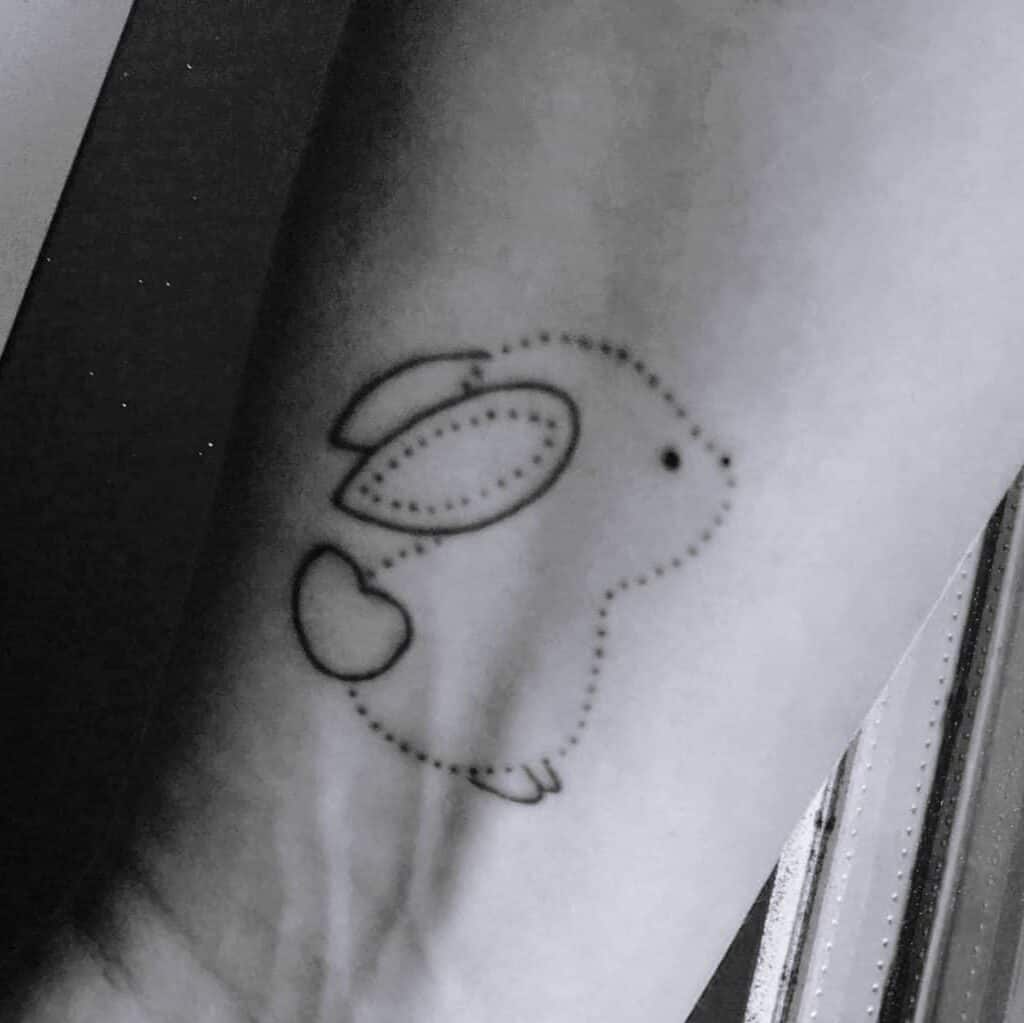
White ink is an unusual option, which creates a subtle effect for the opposite reason – because the contrast is softer and less striking.
But note that white tattoos are harder to create, and require an experienced tattooist; they also fade more easily.
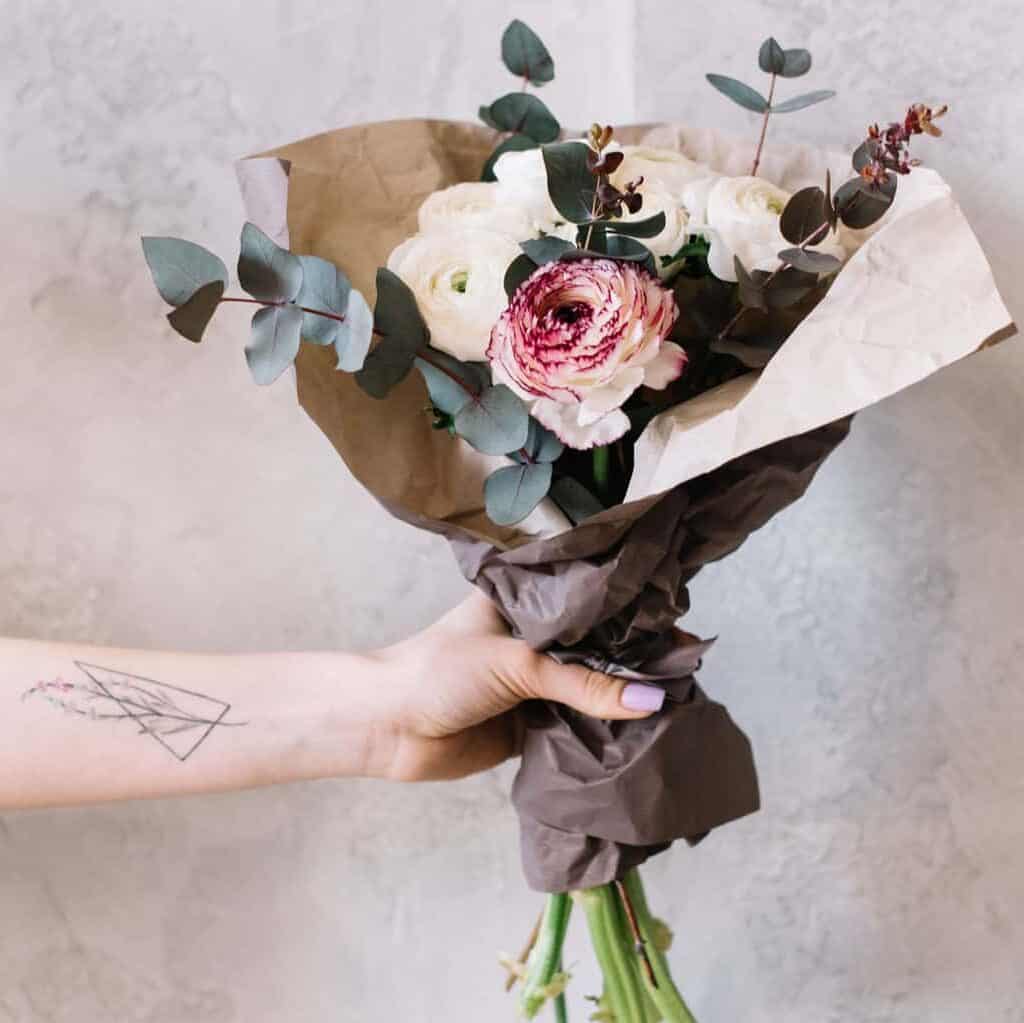
Using any single color helps to simplify a design, but small touches of a second color won’t really change that too much.
A minimalist tattoo can even include multiple colors, especially if used in a very simple design, so that it doesn’t end up looking too ‘busy’.
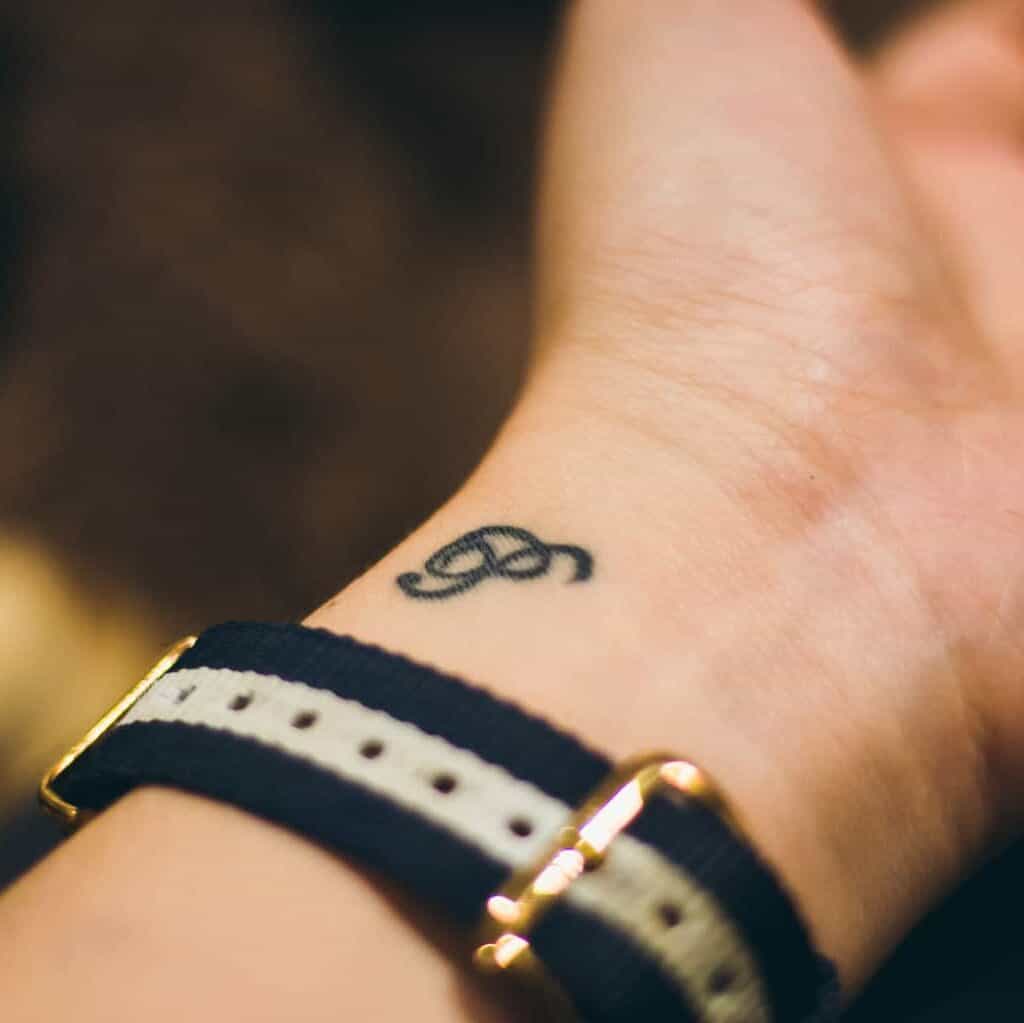
Some motifs are ideal in monochrome. For example, words and writing don’t need any additional color to convey the message.
The same applies to geometric forms or abstract shapes, where the visual power of the design lies primarily in the shape, not the color.

Think of a simple star form, or a heart, a crescent moon or a Celtic knot. When shopping for a minimalist tattoo, remember that extra color can actually distract from the visual power of the design.
Line and Fill
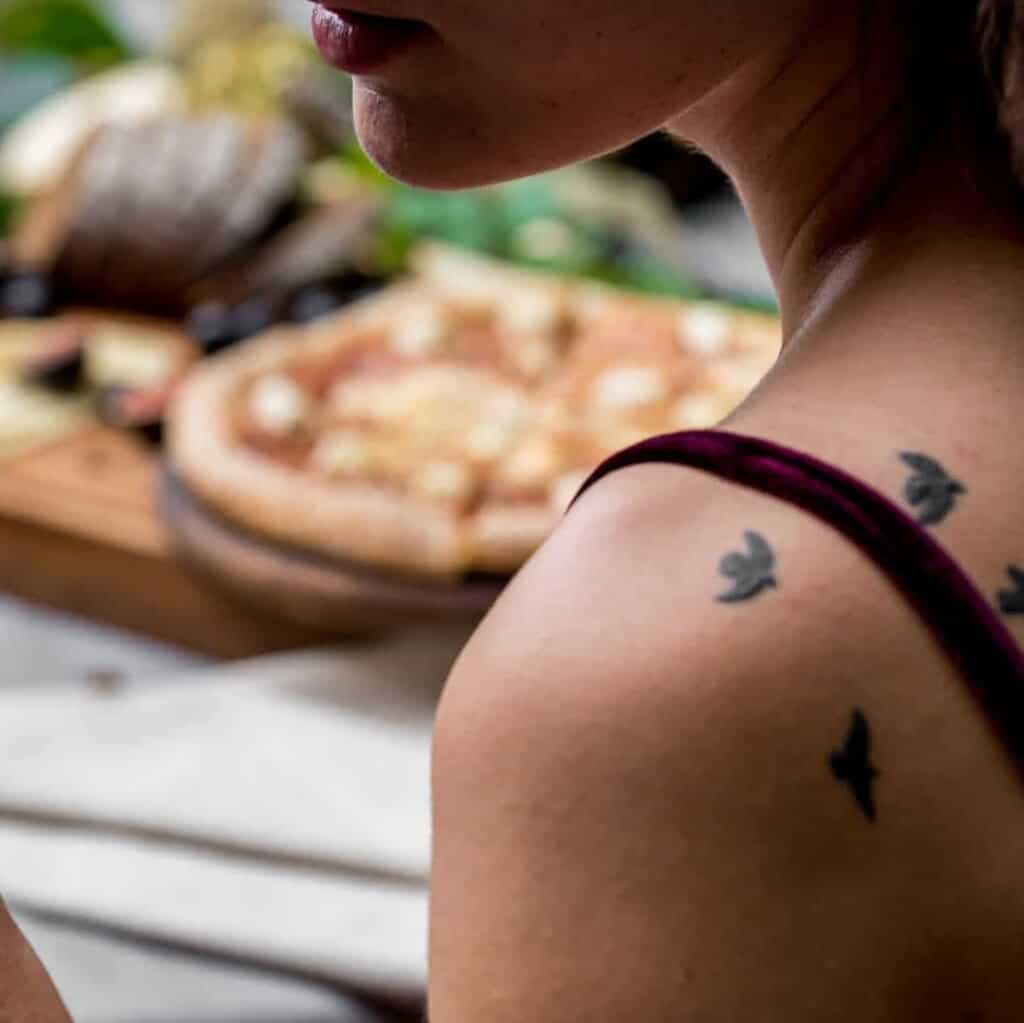
In the hands of an artist, a motif can be reduced to one or two amazingly simple lines. Think of Picasso’s drawings of birds, mice and cats, which convey the essence of the animal with just a couple of brush strokes.
Innovations in tattooing technology allow for incredibly fine lines that are key to creating an understated effect. An expert tattooist can create a life-like image of something as delicate as a feather.
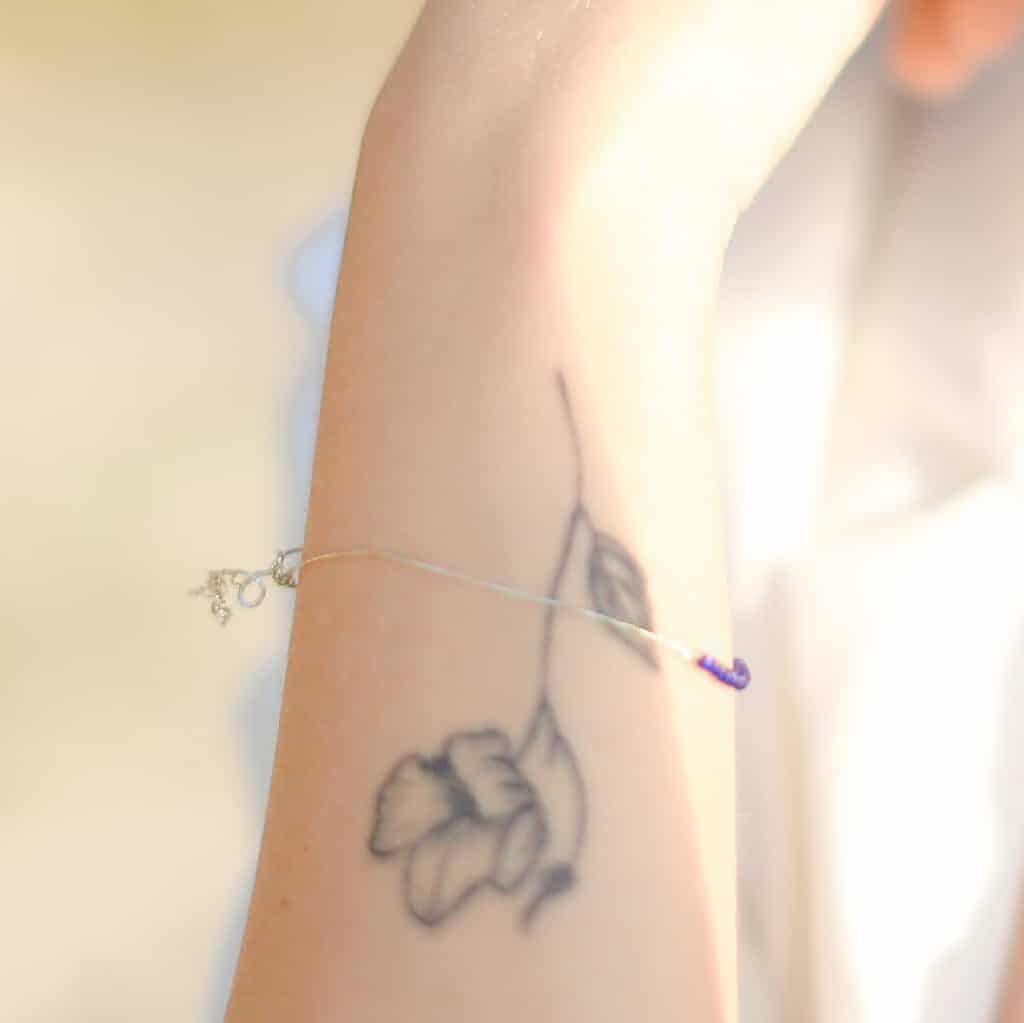
Although an outline form is the ultimate in minimalism, the fine needles that are used today do in fact allow for minute detail that doesn’t appear heavy. Apparently getting this kind of fine line tattoo hurts less too!

For example, fine needles can be used to create a tiny tattoo of a tree, with branches and leaves included.
Even though it includes quite a lot of detail, the end product doesn’t have to appear over-complicated. Solid blocks of color are best avoided in minimalist tattoos.
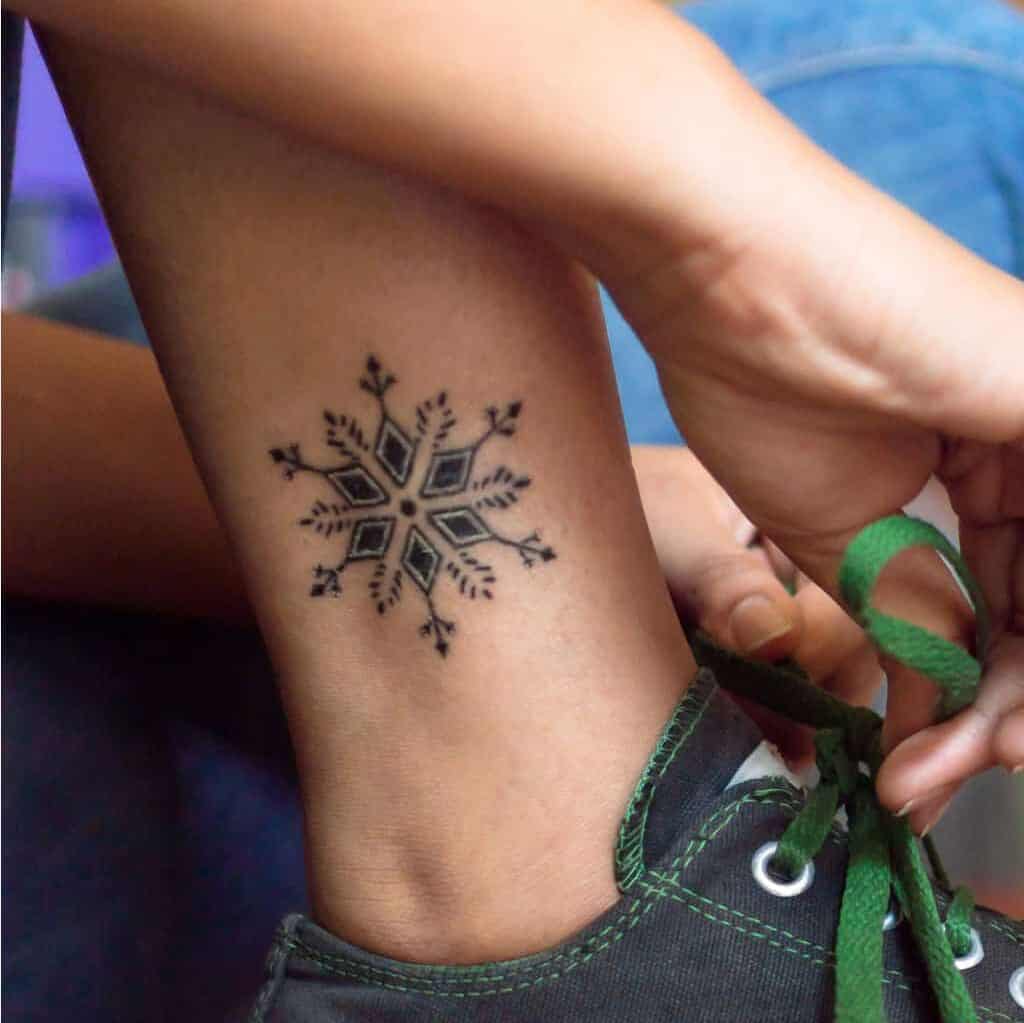
If fill is really needed to complete a design, then the use of multiple tiny dots (stippling) can help to keep the minimal look intact.
Stippling can also be used to create shading, as an alternative to contrasting colors that can add unwanted complexity to a design.
Motifs and Treatments
Just because it’s small, simple and subtle doesn’t mean that your minimalist tattoo can’t pack a punch. A tiny but skilfully made tattoo of an interesting subject can be just as striking as a large design.
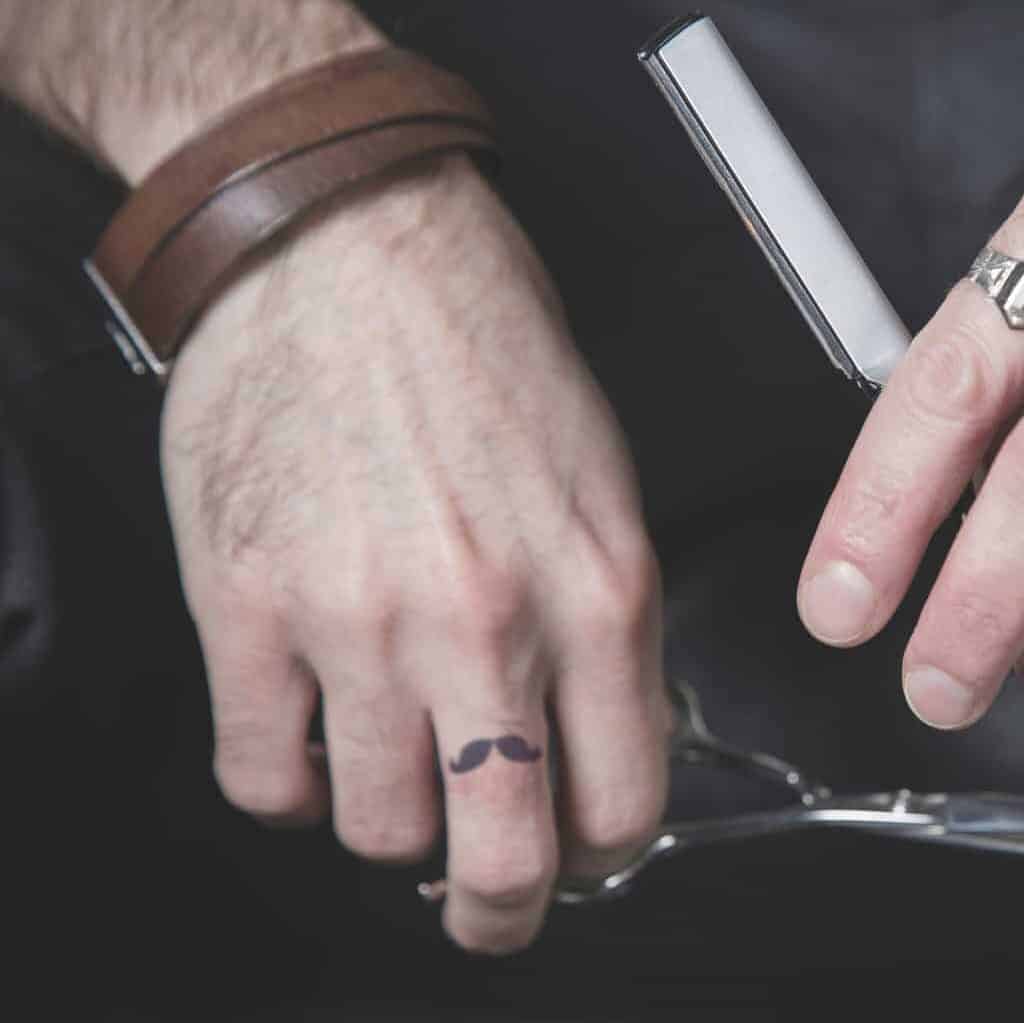
The trick is to choose a motif that works well when stripped down to visual essentials and reproduced on a small scale. Ultimately, it’s all in the way the subject matter is treated by the artist.
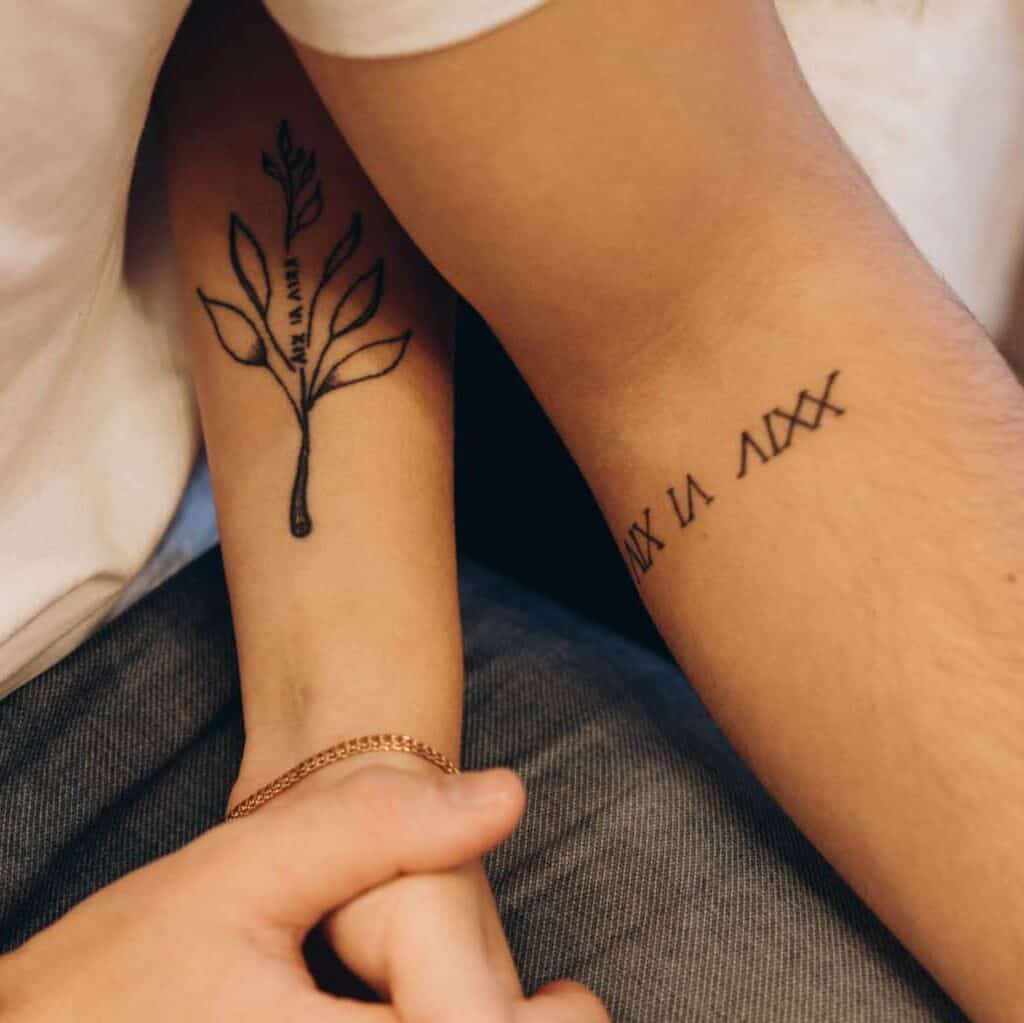
Symbols and signs often work well as minimalist tattoos because they’re already simplified and packed with concentrated meaning.
Think of the yin yang or infinity symbols, which speak volumes but contain minimal design elements.
The elegant forms of oriental characters – like Chinese Hanzi or Japanese Kanji – are attractive and convey a meaning that’s personal for the wearer.
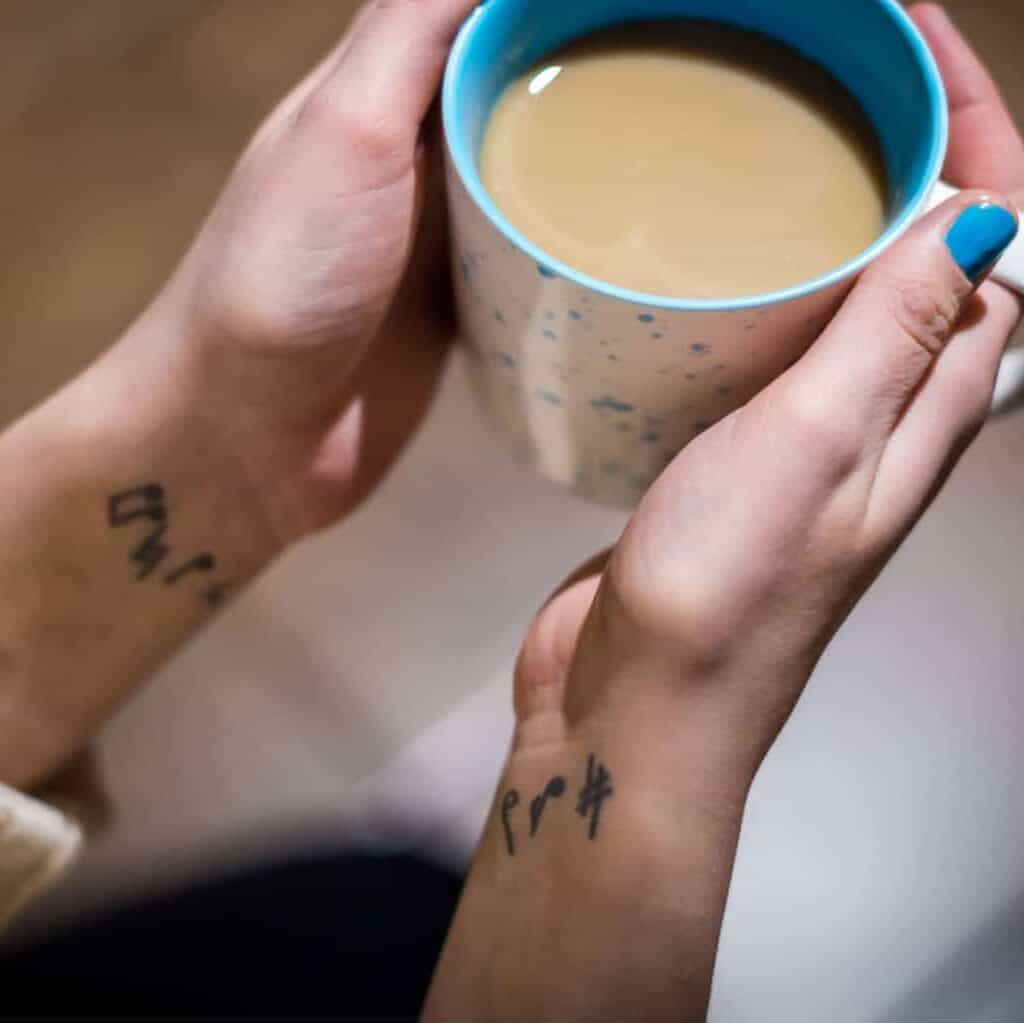
World cultures, from the ancient Celts to the modern Maoris of New Zealand, are rich with signs and symbols of this kind.
If deep meaning isn’t for you, then cartoon characters work in much the same way, because they’re visually uncomplicated.
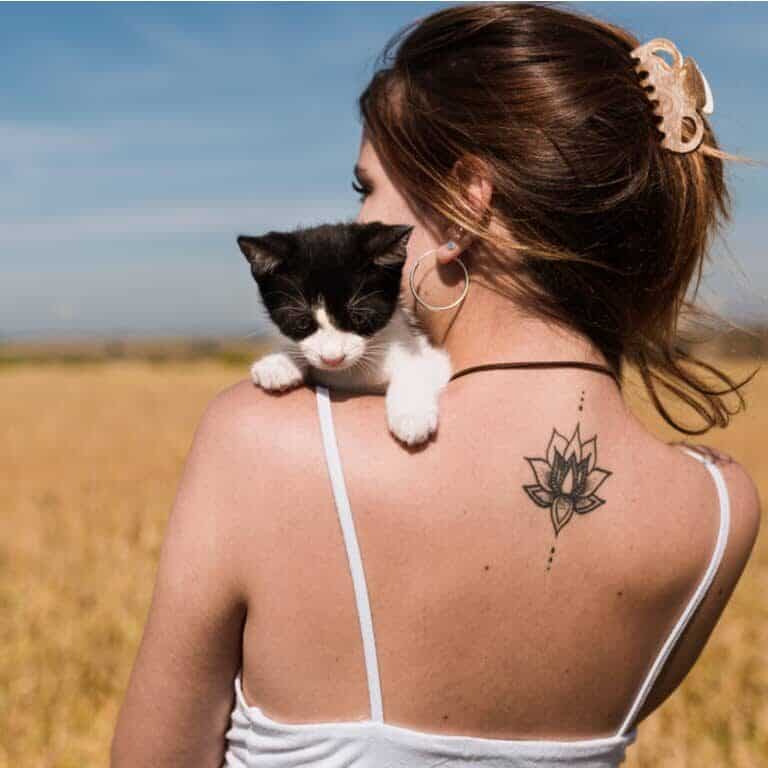
When color is largely or completely eliminated, designs rely heavily on form.
A monochrome lotus flower is a popular tattoo choice because of its simplicity as well as its rich meanings, but the reason it works so well as a minimalist tattoo is because its shape is so distinctive.
There just aren’t other flowers like it and so it’s instantly recognizable.
But some subjects won’t work like this. For example, an outline-only tattoo of a ladybug would just look like a generic beetle. It needs color, or at least its trademark spots, to be identifiable.
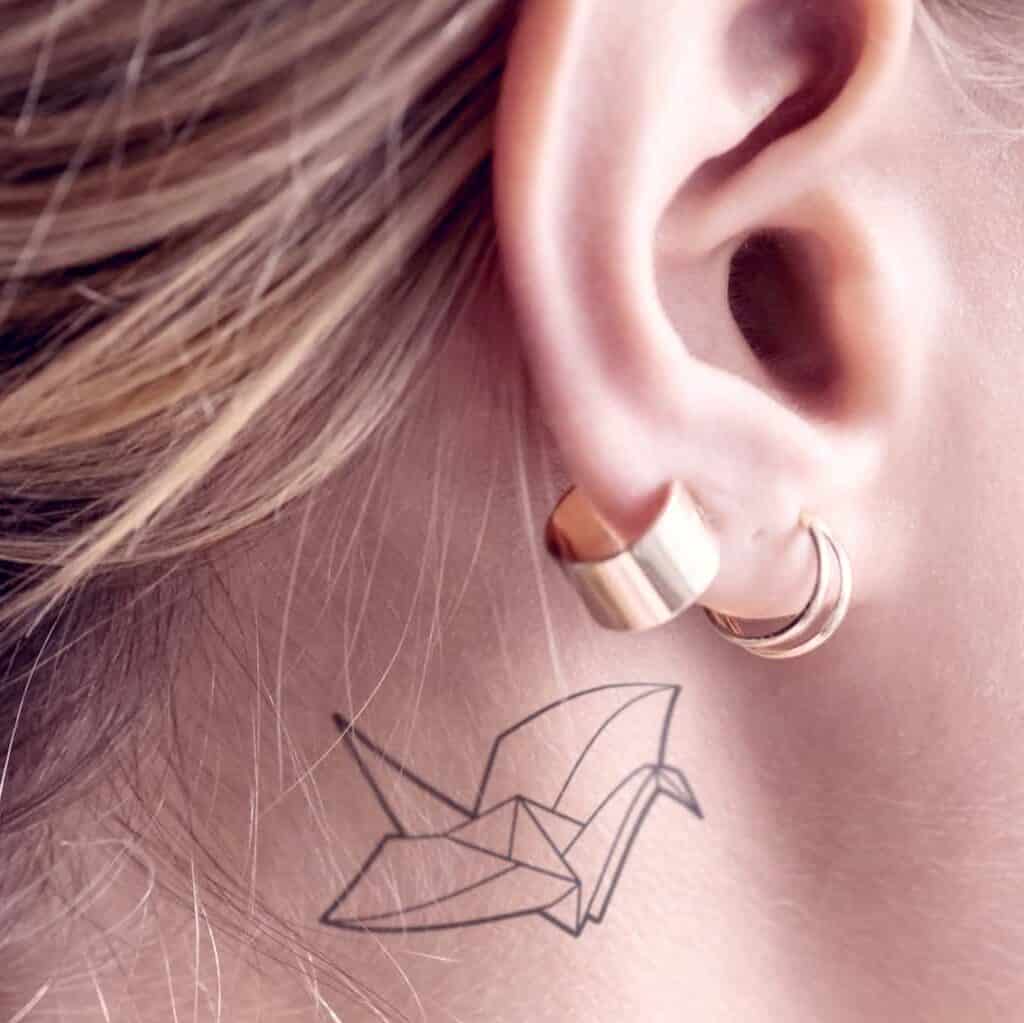
If a plain outline seems just too…well, plain, there are options to make a design more interesting. One trend in tattoo designs involves rendering a subject geometrically, focusing on the different planes that make up its shape.
The effect is a bit like an origami piece, made of crisply folded paper.
Simple straight lines and angles give the impression of depth, while the reduction of something that has sinuous curves into a sharp geometric pattern is both imaginative and eye-catching.
The Secret of Great Minimalist Tattoos
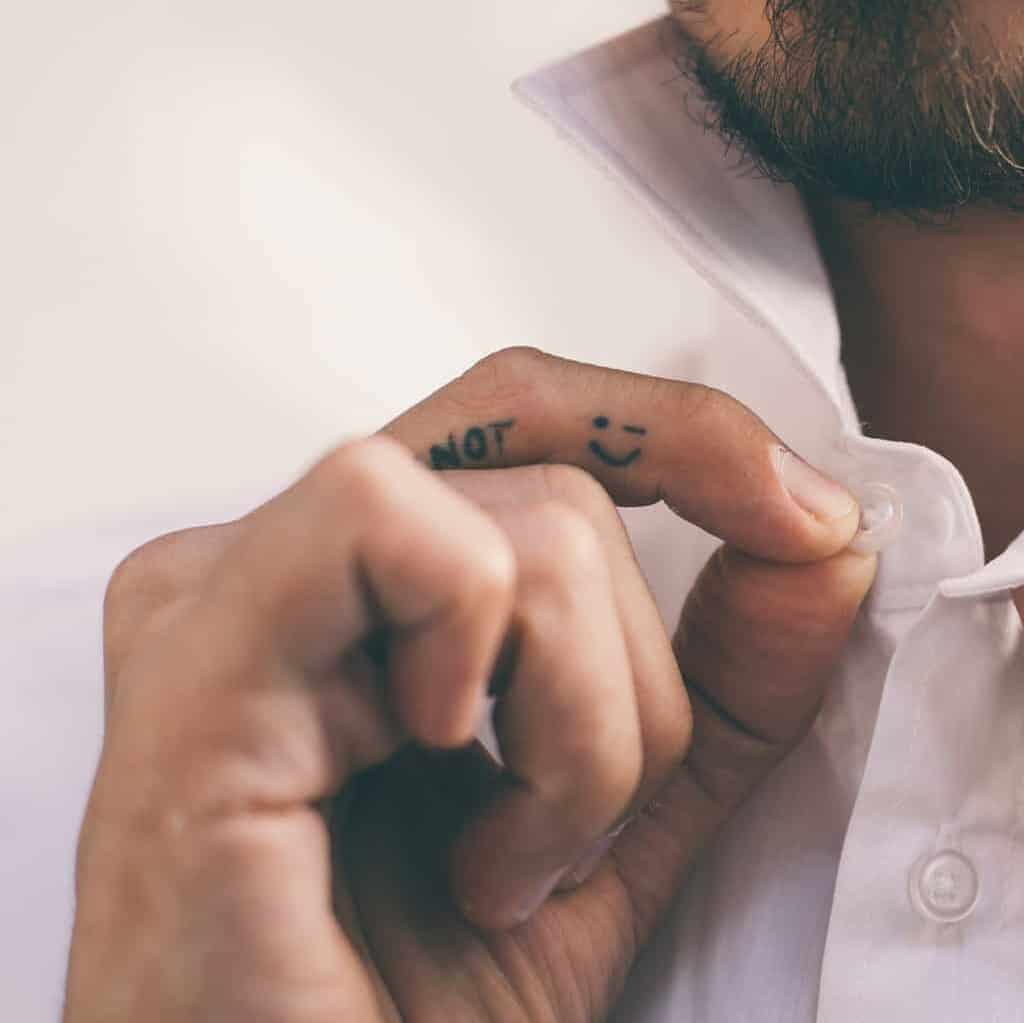
Because tattoos are permanent, they have to be done right the first time. A successful minimalist tattoo done right needs to be thought through carefully before you start.

If you’ve decided on a motif, get to know it.
What makes it distinctive? How much of the image relies on shape and how much on color? How much detail can be subtracted, while keeping it recognizable for what it is and still visually exciting?
Ultimately, a great minimalist tattoo depends on getting the balance of elements just right. If you want it slightly more detailed, cut down on color to compensate. If you want more color, go for the simplest possible lines.
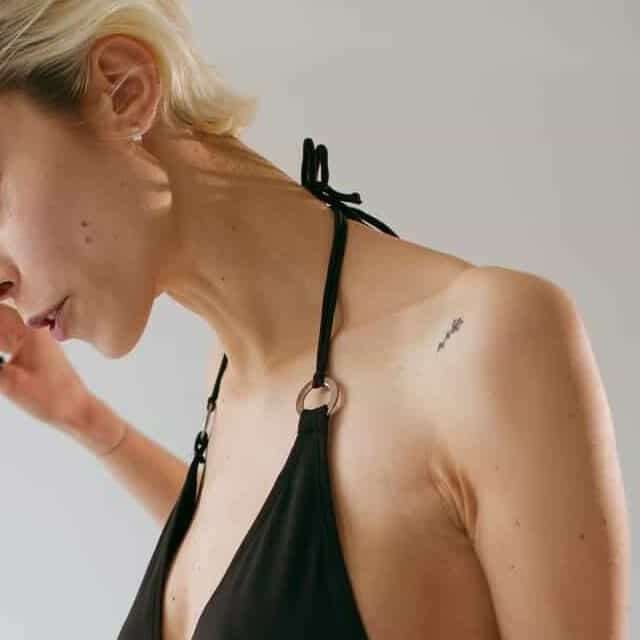
Don’t forget the negative space principle – sometimes absence is presence. Outlines are always best suited to things with highly distinctive forms.
Also remember that minimalist tattoos work best surrounded by blank space, so to achieve maximum minimalism they shouldn’t be too close to any existing tattoos.
Finally, remember that with minimalist tattoos there’s little room for error, so find a tattoo artist who has the skill, vision and experience to get it exactly right.
10 Minimalist Tattoo Examples
